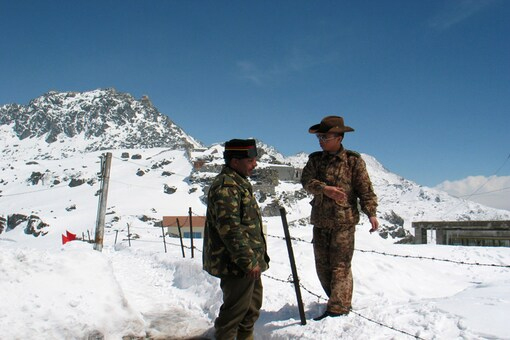
 Source :
Source : Why is China so adamant, almost belligerent, about the border stand-off with India? Is it itching, as some are guessing, for a confrontation? Or is it waiting for a gradual reduction of the tension without loss of face?
On Thursday, India made it clear that it was not the aggressor. External affairs minister Sushma Swaraj told Parliament: "Over the years, China has been trying to get closer and closer to the tri-junction point. It has been involved in dirt road-building, making them metal-top, road repairing and things like that… This time though, they came with bulldozers and construction equipment with the aim of breaching the point where the tri-junction ends. That is a threat to our security." said the minister. "We had to intervene. We are ready to talk but both sides must agree to de-escalate and pull out troops," the minister said.
China countered at once. Lu Kang, Chinese Foreign Ministry spokesperson, said in a statement: "The diplomatic channels between China and India are open. However, as for this incident, we have stressed for many times here that the withdrawal of illegal Indian troops from China is the premise and basis for the two nations to start any meaningful dialogues."
India has made its stand clear. China too. Yet, as happens in normal course of things, back-channel diplomacy has not produced any way out. As yet. Why?
China is to hold a large-scale military parade on August 1, to celebrate the 90th anniversary of the People’s Liberation Army (PLA). That will be followed by the sitting of the 19th Congress of the Chinese communist party in October or November. Both are crucial occasions for President Xi Jinping to articulate his future plans and perhaps tighten his control over the party organization.
Xi will use the parade to outline the contours of what he calls his gift to China: The concept of “national rejuvenation”. That will set the tone for his handling of the party congress later in the year. The rejuvenation plan is expected to spell out Xi’s prescription for China’s expansion in terms of the spread of its economic, cultural, political and military influence.
President Xi is also the chairman of the Central Military Commission. In that capacity he is the commander-in-chief of the People’s Liberation Army. He is anyway the party general secretary. His first 5-year term ends this autumn and he will be entering his second term that ends in 2022.
Since the period of Deng Xiaoping, the Chinese leaders have supported the convention of a leadership serving two five-year terms. And as part of the convention, the leader names his successor at the beginning of his second term in order to give the successor a five-year apprenticeship. China insiders are not clear if Xi will name a successor or even announce he would step down in 2022. His worst critics even say Xi expects to be anointed the supreme leader of China. Such a leader is obviously not encumbered by terms of office and formalities like naming successors but is entrusted with the task of charting the country’s course for the future.
In this context and under these circumstances, President Xi may prefer avoiding external confrontations such as the one with India and Bhutan over Doka La so he can focus on things internal. It is also true that the President may be using the stand-off as an opportunity -- sending a message to his critics inside China by adopting a we-will-not-tolerate attitude towards India. While India has explained its stand many times over, China has adopted a stick-and-stick policy wherein the adamant tenor of its foreign office spokespersons is complemented by jingoistic airs from the state media. Despite all this, there seem to be indications from China that they expect India to give them a face-saving mechanism to mutually reduce the tension. Normally, when negotiations begin, it is understood that the parties on the table know what the other really wants. The sine qua non, of course, is to not allow the negotiations to reach a point of no return.